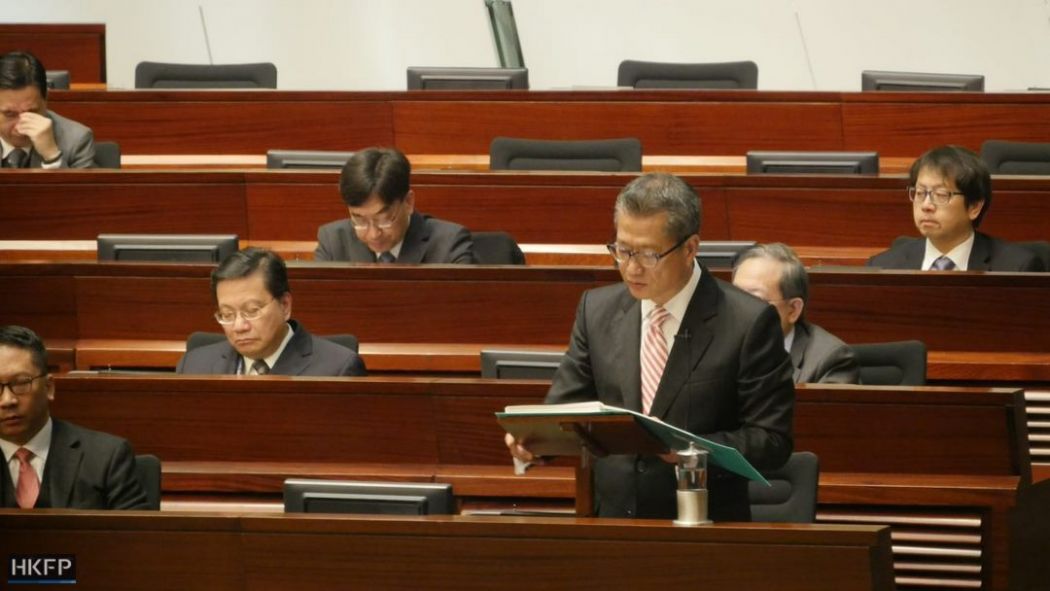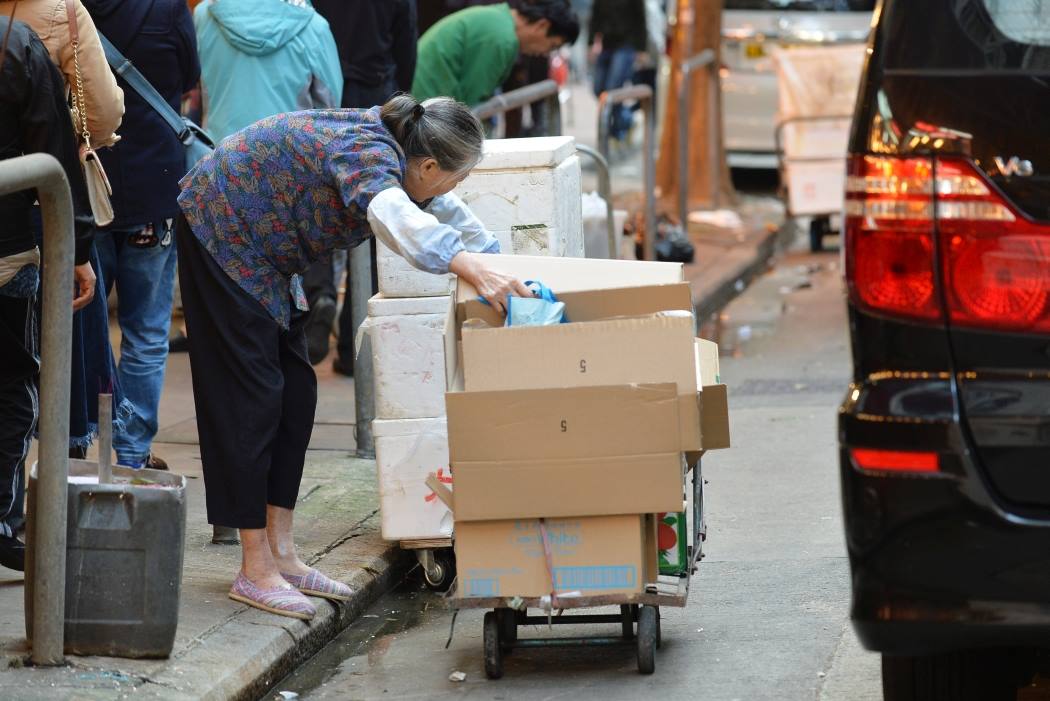It’s that embarrassing time of year again, when a city with one of the biggest wealth gaps in the developed world—a city in which ordinary people can no longer even dream of owning their own home—announces yet another obscenely large budget surplus that yet another clueless finance minister doesn’t know what to do with.
For years, this was former financial secretary John Tsang Chun-wah’s embarrassment of riches. During Tsang’s 10-year tenure, he accumulated surpluses totalling nearly HK$440 billion while assuring Hongkongers that we would eventually thank him for his obsessive hoarding on that impending “rainy day” when the global economy went south and Hong Kong’s rapidly ageing population and low fertility rate combined to dry up tax revenues and strain the city’s health care system, draining public coffers.

As we continue to wait for the financial storm and geriatric tsunami Tsang warned us against, his successor, Paul Chan Mo-po, completing his first full year in office, is set to announce the biggest surplus to date, estimated at nearly HK$160 billion.
Add that to the more than HK$1.7 trillion in fiscal reserves on which the Hong Kong government was sitting at the end of December and ask yourself what the average person has to show for this mountain of accumulated cash other than occasional one-off hand-outs and perennial fiddling and diddling with a tax system built and maintained for the rich.
Is there some form of universal pension system on the horizon?
How about a grand plan to rein in greedy property developers and the mafia-like Heung Yee Kuk so as to create a housing scheme that would finally make home ownership an achievable dream for the average Hongkonger?
No, bold initiatives like these would be too much to ask from a government that can’t even stop employers from raiding their workers’ low-earning Mandatory Provident Fund—intended as a retirement nest egg—for severance payments after they lay those employees off.

Chan is not as miserly as his predecessor, but when he delivers his budget speech next Wednesday, we can nevertheless—in the name of “fiscal prudence”— expect more of the same. The record surplus will no doubt force him to increase spending on social welfare, and Chan has said that he also plans to target aid to industries related to innovation and technology. That’s all well and good, but what this city needs is not more fiscal tinkering and sweeteners but instead a radical rethink.
It’s time for Hong Kong finance chiefs to stop saving for a rainy day and start spending—and spending big—today.
Indeed, the looming “structural deficit” that Tsang harped on about as the surpluses piled up is now being questioned by economists who, conversely, warn of a continuing “structural surplus” of untapped wealth in a society riven by economic, social and political tensions.
Thanks to massive land premiums and stamp duty from property and stock markets firing on all cylinders, Hong Kong’s revenue intake has never been higher as money also keeps pouring across the border from the mainland. Yet in this robust economic environment, poverty has actually worsened in the city, especially for ethnic minorities, children and the elderly.
Moreover, the city’s public health care system has been strained to the breaking point, with the dean of Chinese University’s medical school, Professor Francis Chan Ka-leung, recently comparing the crowded and chaotic conditions in the city’s public hospital wards to those found in “wet markets” and on “battlefields.” And where is that much-needed land bank for future housing needs? What are we waiting for?

Hong Kong’s laissez-faire economic policies hark back to the days of British colonialism. But Hong Kong ceased to be a British colony 20 years ago. It’s now a 21st-century city with 21st-century social and economic problems that simply cannot be adequately addressed by outdated thinking and policy-making. Not to mention the elitist colonial attitudes that continue to permeate Hong Kong officialdom two decades after the departure of their mentors.
There are plenty of creative ideas out there for making Hong Kong a fairer, less fractious and more equal society—from defanging the Kuk and scrapping the small-house policy in the New Territories to using some of Chan’s whopping surplus for government-supplied interest-free loans for first-time homebuyers to (you can already hear the cries of “Heresy! Heresy!”) increasing taxes to help fund a viable universal pension scheme.
But will any of these big ideas surface in Chan’s budget address? Almost certainly not as that would require the sort of creative, out-of-the-box thinking that would threaten to burst the elitist bureaucratic bubble that insulates Hong Kong officials from the real lives of the people they are supposed to represent.
